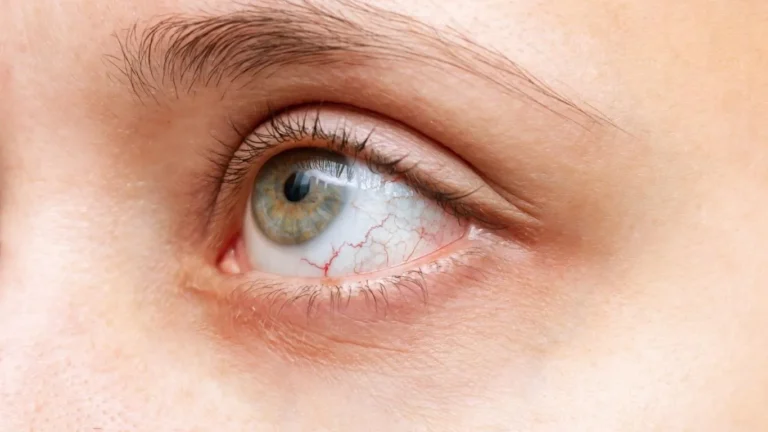Manage GERD and Hunger Pain: Simple Solutions for Relief
As a Medical Assistant working in a Gastroenterology Clinic, I’ve encountered a wide variety of digestive disorders that can cause discomfort. One condition I often discuss with patients is GERD (Gastroesophageal Reflux Disease), and something many don’t realize is how it can tie into hunger pain. GERD is known for causing heartburn and regurgitation, but it can also make you feel like you’re constantly hungry. In this article, we’ll dive into how GERD and hunger pain are connected, and why it’s important to understand the difference. Whether you’re a GERD sufferer or just curious, this will help you better understand the complexities of this condition and the sensations it causes.
Understanding GERD and Its Symptoms
Before we jump into the connection between GERD and hunger pain, it’s essential to first understand what GERD is and what causes it. GERD is a chronic digestive condition where stomach acid flows back up into the esophagus. This reflux can cause a variety of uncomfortable symptoms, with heartburn being the most well-known. But GERD doesn’t just cause heartburn; it can also lead to chest pain, difficulty swallowing, bloating, and even nausea.

One of the lesser-discussed aspects of GERD is how it can make you feel hungry, even when your stomach is full. This is because the stomach and esophagus are closely linked, and when one is affected by acid reflux, it can disrupt hunger signals. Essentially, your body may confuse the discomfort from reflux as hunger, leading you to feel the urge to eat even when it’s not needed.
Why GERD Makes You Feel Hungry
If you’ve ever experienced that gnawing, empty feeling in your stomach but weren’t actually hungry, you might have GERD to blame. The sensation of hunger pain is often related to the way your body processes food and signals to the brain when it’s time to eat. However, GERD can interfere with these signals in a few different ways.
- Disruption of digestive hormones: GERD can affect the hormones that regulate appetite, such as ghrelin and leptin. These hormones help you feel hungry or full, and when they are thrown off balance, you might experience hunger pains even if your stomach is not empty.
- Stomach acid irritation: The acid from the stomach can irritate the lining of the esophagus, which may send confusing signals to your brain. This miscommunication can make your brain think you need food, even though you may already have eaten.
- Delayed gastric emptying: GERD can cause the stomach to empty more slowly, which may lead to a feeling of fullness followed by an abrupt return of hunger, confusing your body’s natural appetite signals.
Hunger Pain vs. GERD Pain: How to Tell the Difference
As someone who’s seen countless patients suffering from GERD, one of the most common questions I get is how to distinguish hunger pain from GERD pain. While both can cause discomfort in the stomach, there are key differences that can help you identify which one you’re dealing with.
Signs That It’s GERD, Not Hunger
Here’s the tricky part—sometimes it can be hard to differentiate between hunger pain and GERD pain, especially if your symptoms are subtle. However, a few tell-tale signs can help you figure it out:
- Heartburn: GERD is notorious for causing a burning sensation in the chest, usually after eating. If you’re experiencing chest discomfort along with your stomach pain, it’s more likely GERD.
- Acidic taste in your mouth: GERD can bring up acid into the mouth, causing a sour or bitter taste. If you notice this along with your stomach discomfort, it’s a strong sign that GERD is the culprit.
- Timing: GERD pain often occurs after eating or when lying down. Hunger pain, on the other hand, typically arises when your stomach is empty, usually before mealtime.

When Hunger Pain Strikes
Hunger pain, in contrast, is a much simpler sensation to pinpoint. It’s typically a mild, rumbling sensation in your stomach that intensifies as time passes without eating. If you’re hungry and your stomach is empty, you’ll usually feel a gnawing or growling feeling that can be alleviated once you eat something. Unlike GERD pain, hunger pain doesn’t typically come with a sour taste in your mouth or chest discomfort.
Managing GERD and Hunger Pain Together
If you’re someone who suffers from both GERD and hunger pain, it can feel like a never-ending cycle of discomfort. The good news is that there are several ways to manage both conditions at once. As someone who has worked closely with patients dealing with GERD, I’ve seen firsthand how certain lifestyle changes can make a huge difference.
Simple Strategies to Manage Both
- Eat smaller, more frequent meals: Eating smaller portions throughout the day can help reduce the pressure on your stomach, which may lessen the chances of acid reflux while still satisfying hunger.
- Stay upright after eating: Lying down too soon after eating can trigger GERD symptoms. Try to stay upright for at least an hour after meals to allow food to properly digest.
- Choose GERD-friendly foods: Avoid trigger foods like spicy dishes, acidic foods, and caffeine. Opt for bland, soothing foods like oatmeal, bananas, and non-citrus fruits.
- Manage stress: Stress can aggravate both GERD and hunger pain. Incorporating relaxation techniques like yoga or deep breathing can help manage these symptoms.

Medications and Treatments for GERD and Hunger Pain
Managing GERD and the constant discomfort of hunger pain can often require a combination of lifestyle adjustments and medications. After years of working with patients who experience GERD, I’ve seen firsthand how medications can help reduce the intensity of symptoms, but they are most effective when paired with healthier eating habits and changes in daily routines. Let’s explore some of the common medications prescribed for GERD and how they might help with hunger-related discomfort as well.
Common Medications for GERD
When GERD symptoms are frequent and troublesome, doctors usually recommend medications to control acid production in the stomach. These medications fall into several categories:
- Antacids: These are the go-to over-the-counter remedies for immediate relief. Antacids neutralize stomach acid and help soothe the burn that comes with GERD. While they work quickly, they are generally for short-term use and don’t address the root cause of GERD.
- H2 blockers: These medications reduce the amount of acid your stomach produces. They work more slowly than antacids, but they offer longer-lasting relief. H2 blockers are often recommended for people with more frequent GERD symptoms.
- Proton pump inhibitors (PPIs): PPIs are stronger medications that block acid production altogether. They are typically used for more severe GERD cases and are known for their effectiveness in healing the damage caused by acid reflux over time.

Managing Hunger Pain with Medication
When GERD is causing constant hunger-like pains, the question often arises: What can I do to stop the cycle? It’s important to address both the acid reflux and the sensations of hunger. Here’s how medication can be a helpful part of that process:
- H2 blockers and PPIs: While these medications are primarily prescribed for GERD, they also help to reduce the irritation in the stomach, which can sometimes be mistaken for hunger pain. By reducing acid production, these medications may lessen the confusion your body feels when trying to interpret hunger signals.
- Prokinetics: If you suffer from delayed gastric emptying (a common side effect of GERD), your doctor may prescribe prokinetics. These medications help speed up the emptying of your stomach, which can alleviate both GERD symptoms and hunger-related discomfort.
Dietary Modifications to Manage GERD and Hunger
As a medical assistant, I always emphasize the importance of diet in managing GERD. What you eat and when you eat can play a significant role in preventing both GERD and hunger pain from becoming a constant part of your day. Let’s take a deeper look at the best dietary strategies for managing these two issues together.
Foods to Avoid with GERD
One of the most powerful tools in managing GERD is simply avoiding certain trigger foods. While everyone’s triggers may differ slightly, there are some common offenders that tend to exacerbate GERD symptoms and contribute to that gnawing hunger pain:
- Spicy foods: Hot peppers, hot sauces, and spicy dishes can irritate the lining of the stomach and esophagus, leading to reflux and discomfort.
- Acidic foods: Foods like citrus fruits, tomatoes, and vinegar can increase the acidity in the stomach and cause reflux. These are best avoided if you’re dealing with GERD symptoms.
- Fatty and fried foods: These foods can slow down digestion and worsen GERD. They’re also notorious for triggering hunger pains when your stomach takes longer to empty.

GERD-Friendly Foods to Include
On the flip side, there are several foods that can help soothe GERD and may even alleviate hunger-related discomfort. These foods are gentle on the stomach and can help reduce the chances of reflux while keeping you satisfied:
- Non-citrus fruits: Bananas, apples, and melons are great options that are less likely to trigger GERD. They’re also light on the stomach, making them a good choice if you’re feeling hungry but don’t want to irritate your digestive system.
- Whole grains: Oatmeal, brown rice, and whole wheat bread are rich in fiber, which aids in digestion and helps keep you full longer without aggravating GERD.
- Lean proteins: Skinless chicken, turkey, and fish are easy on the stomach and can help curb hunger without contributing to reflux.
- Vegetables: Most vegetables are safe for GERD sufferers, with the exception of onions and garlic, which can trigger reflux. Steamed or sautéed vegetables like carrots, zucchini, and spinach are great choices.
How Stress Affects GERD and Hunger Pain
As someone who’s dealt with GERD in both a professional and personal context, I can tell you that stress plays a huge role in triggering both GERD and hunger pain. Stress activates the body’s “fight or flight” response, which can cause the stomach to produce more acid and worsen symptoms. It also interferes with the body’s natural hunger signals, making you feel hungrier than you might actually be.
Stress Management Techniques
Stress management is one of the most overlooked aspects of managing GERD. When stress is under control, you’re likely to experience fewer flare-ups of both GERD and hunger-related discomfort. Here are a few techniques that can help manage stress effectively:
- Mindfulness and meditation: These practices can help you stay calm and centered, reducing stress and potentially preventing GERD symptoms from flaring up.
- Regular exercise: Physical activity releases endorphins, which are natural stress relievers. Just be sure to wait at least an hour after eating before engaging in intense exercise to avoid triggering reflux.
- Deep breathing exercises: Simple deep breathing techniques can be a quick and effective way to reduce stress and alleviate GERD symptoms. Taking slow, deep breaths for a few minutes can help lower heart rate and relax the body.

Long-Term Management of GERD and Hunger Pain
For those living with GERD and the constant frustration of hunger pain, long-term management becomes essential. Having worked with many patients over the years, I’ve seen how ongoing efforts to manage both conditions can lead to a significant improvement in quality of life. A combination of medication, lifestyle changes, and mindful eating practices can help reduce flare-ups and keep GERD and hunger at bay. But let’s dive deeper into some of the strategies that can help ensure long-term relief and comfort.
Regular Follow-Ups with Your Doctor
Managing GERD and its associated symptoms, like hunger pain, is not something you should do alone. Regular check-ins with your doctor are essential to adjusting your treatment plan and making sure your condition is under control. Over the years, I’ve seen how important it is to work with a healthcare professional to ensure the most effective treatment for your specific needs.
It’s especially important to check in with your doctor if you notice new symptoms or if your current medications and lifestyle changes aren’t providing the relief you need. GERD is a dynamic condition, and what works for you today may not work in the future. Staying in close communication with your healthcare provider ensures that you stay on top of any changes in your condition and get the support you need.
Weight Management and GERD
One of the most significant lifestyle changes that can help with GERD and hunger pain is maintaining a healthy weight. I can’t stress enough how much excess weight can contribute to GERD symptoms. In fact, obesity is one of the primary risk factors for developing GERD. The extra weight places pressure on your stomach, causing acid to flow back into the esophagus more frequently. This can lead to more intense hunger sensations and a vicious cycle of discomfort.
If you’re struggling with weight management, I always recommend working with a healthcare provider, nutritionist, or even a personal trainer to develop a personalized plan. Losing even a small amount of weight can help alleviate GERD symptoms and reduce hunger pain. Regular physical activity not only helps with weight management but also promotes healthy digestion and improves overall gut function.

Mindful Eating Habits to Ease GERD and Hunger Pain
In addition to medication and weight management, mindful eating plays a crucial role in both preventing GERD flare-ups and alleviating hunger pain. As a Medical Assistant, I’ve seen that many people eat too quickly or under stress, which can worsen GERD symptoms and disrupt the body’s natural hunger signals. Let’s dive into some of the best practices for eating mindfully.
Eat Slowly and Chew Your Food Thoroughly
It might seem like common sense, but eating slowly and chewing your food properly can significantly impact how your body processes food. When you rush through meals, you’re more likely to swallow air, which can lead to bloating, indigestion, and GERD symptoms. Furthermore, improper chewing can put additional stress on your digestive system, making it harder for your stomach to break down food properly. This can make you feel like you’re constantly hungry even if your stomach isn’t empty.
Taking your time to eat, chewing each bite thoroughly, and putting your utensils down between bites can help ease digestion, reduce reflux, and prevent hunger-like pains. It’s a small change, but one that can make a huge difference in managing GERD.
Avoid Eating Right Before Bed
If you’re prone to GERD symptoms, eating late at night can be one of the worst things you can do. I’ve seen patients struggle with GERD-related hunger pain and reflux when they eat too close to bedtime. The stomach takes longer to digest food when you’re lying down, which can cause acid to move into the esophagus, leading to heartburn and discomfort.
To minimize GERD symptoms and avoid hunger pangs before bed, try to finish your last meal at least 2–3 hours before going to sleep. This gives your stomach enough time to digest food, reducing the likelihood of reflux and the associated discomfort of hunger pain.

When to Seek Medical Help
Despite all of the lifestyle changes and home remedies available, sometimes GERD and hunger pain can still be persistent and difficult to manage. If you’re experiencing frequent and severe symptoms, it may be time to seek further medical help. I’ve seen many patients who ignore their symptoms for too long, thinking they will just go away on their own. Unfortunately, untreated GERD can lead to long-term complications, including esophageal damage or even a condition called Barrett’s esophagus, which is a precursor to esophageal cancer.
Signs You Should Seek Medical Advice
While mild GERD symptoms can often be controlled at home, you should consult a doctor if you experience any of the following:
- Frequent heartburn: If heartburn occurs more than twice a week or disrupts your daily activities, it’s time to speak with your healthcare provider.
- Dysphagia (difficulty swallowing): If you find it hard to swallow food, it could be a sign of an underlying issue that requires medical attention.
- Unexplained weight loss: If you’re unintentionally losing weight while experiencing GERD symptoms, it’s important to check in with your doctor.
- Severe chest pain: If you experience severe chest pain that doesn’t feel like typical heartburn, seek immediate medical attention to rule out other conditions, such as a heart attack.
Disclaimer
The information provided in this article is intended for informational purposes only and should not be construed as medical advice. Always consult with a qualified healthcare provider for any medical concerns or before starting any new treatment regimen. The advice shared is based on personal experience and general medical knowledge, and it is important to tailor any treatment or lifestyle changes to your specific health needs with the guidance of a professional.
For more information about GERD and its treatments, you can refer to trusted sources like National Institutes of Health (NIH) or Health.com.

Camellia Wulansari is a dedicated Medical Assistant at a local clinic and a passionate health writer at Healthusias.com. With years of hands-on experience in patient care and a deep interest in preventive medicine, she bridges the gap between clinical knowledge and accessible health information. Camellia specializes in writing about digestive health, chronic conditions like GERD and hypertension, respiratory issues, and autoimmune diseases, aiming to empower readers with practical, easy-to-understand insights. When she’s not assisting patients or writing, you’ll find her enjoying quiet mornings with coffee and a medical journal in hand—or jamming to her favorite metal band, Lamb of God.







